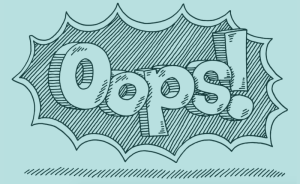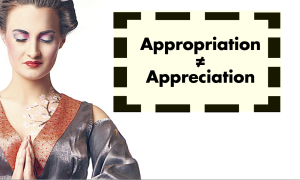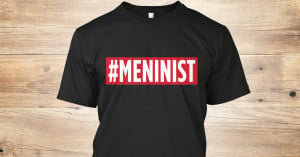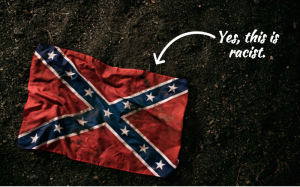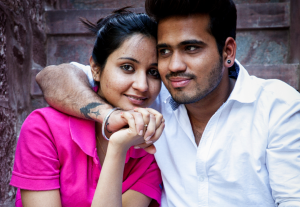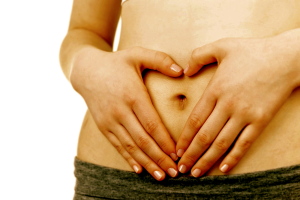
Source: Sanctuary Massage
All right, folks, it’s time to talk about it. That dirty little secret that half the population is expected to keep. That shameful reality that we take extreme measures to avoid.
Menstruation. The rag. The crimson wave. Aunt Flo. Flying the red flag. Et cetera.
It’s a beautiful thing.
No, really, it is. Just hear me out now – and this is for both people who menstruate, and those who don’t.
When I was in college, I started using a Diva Cup, which is a silicone menstrual cup that is inserted into the vagina to catch menstrual blood. As I was inserting my Diva Cup, I had a realization – it was my first time feeling the inside of my vagina.
I’d had boyfriends who had known my body better than I did. Who knew that the inside of my vagina was soft and smooth? I didn’t. But my boyfriends did.
It’s no secret that women aren’t expected to fully inhabit our bodies. We are seen as objects in this world.
To link that objectification to periods — isn’t it strange that the products that we use to for menstruation help us to stay disconnected from our bodies?
We use plastic to put tampons in our vaginas, pull them out by the bottom of long string, and then throw them away, all without getting our fingers bloodied.
We are almost completely disengaged from our blood and our bodies.
Well, no more.
Let’s redefine the cultural narrative around menstruation as a dirty little secret.
For many people, periods are wholly painful and unpleasant experiences. Cramps, bloating, migraines – all of these are experiences that sometimes come with menstruation. And some women have Premenstrual Dysphoric Disorder (PMDD), an extreme form of PMS.
For these reasons, it’s completely reasonable that one might not enjoy a period.
But those are not reasons to be shamed for having a body that bleeds.
We need to reclaim this experience and find power in the blood that unites us.
Here’s Why It’s Important For Us To Reclaim Our Periods
1. Menstruation Is Natural, Beautiful, and Powerful
There are entire movements that exist for the purpose of helping women to accept and celebrate their body’s ability to menstruate! Menarchy, or menstrual anarchy, exists to counter the Western disgust of menstrual blood.
Menarchy seeks to redefine menstruation as a natural and beautiful experience of womanhood. (Of course, not all people who have periods identify as women, and not all people who identify as women have periods.)
It is not an embarrassment, it is not disgusting, and it is not foul. It’s actually really cool!
Did you know that your mother’s blood kept you alive for nine months in the womb? Talk about powerful. Menstrual blood is life-giving.
2. Some Companies Try To Make Us Feel Bad About Our Periods To Buy Their Products
There is an entire industry that exists on commodifying menstruation and women’s bodies! How messed up is that?
- Scented tampons: Did you know that blood doesn’t have a scent until it leaves the body? Why, then, do we buy perfumed cotton balls to mask the scent that is inside of us?
- Tampon-concealing wrappers: It exists to confuse men into believing that the tampon is anything but a tampon. The smaller size of the compact tampons, the brightly decorated wrappers, etc.
- Douches: Are you freaking kidding me? Douches are not necessary and only exist to shame women into believing that a totally sexy and awesome part of their bodies is gross. Eff that. Vaginas are self cleaning.
They are not dirty.
I repeat: Vaginas Are Not Dirty.
When even feminine product companies are making fun of their own industry, you know it’s bad.
If for no other reason than to give the finger to this industry that exists to make us feel dirty and shameful, let’s change our views of menstruation!
3. Some Companies Try To Make Us Feel Periods are “Inconvenient” To Buy Their Products
There is also an industry that is working to make menstruation disappear. The pharmaceutical advancements that suppress menstruation are beneficial for those for whom it is a medical necessity, but becomes dangerous when done for convenience.
“Convenience,” in this case, is not primarily for those who menstruate, but for the men who are disgusted by it.
It means convenience for the partners who don’t want to have sex with a menstruating woman and who are simultaneously unwilling to wait the 5-7 days until it’s over.
It means convenience for the people who don’t want to see women buying pads at the grocery store, for the people who don’t want to see a woman walk into the bathroom carrying a tampon.
When pride for menstruation overpowers those voices of shame, we will redefine the idea of convenience.
We must fight to defend menstruation! Just as feminists once fought for equal rights for menstruating women in the workplace and for better products for functional menstruation management, we must fight now to keep menstruation a norm in our society.
We must send the message to pharmaceutical companies that we will not be shamed into taking their period erasing drugs.
Menstruation is not a disease, and there should not exist a “cure.” Let’s stop the pathologizing.
4. Our Periods Connect Us to the Moon and to the Sea
How beautiful is that?
The waxing and waning of the moon, the ebb and flow of the ocean, are reflected in the menstrual cycle. The ripening of an egg and subsequent pregnancy or release of blood mirrors the natural process of creation.
We are creatures of the earth, and we are gifted with a beautiful reminder of that each time we bleed.
That’s why the period was once viewed as a sacred experience, and that’s why we should celebrate our sacred bodies now.
5. Menstruation Is A Shared Experience
Think of all of everyone across the world who bleed. Think of that connection. There is so much power in that unifying experience.
Regardless of skin color, class, geographical location, gender — all of the factors that generally divide — our blood transcends all of those boundaries.
So What’s a Menstruating Person To Do?
1. Use Alternative Products
I mentioned earlier that I love my Diva Cup, but there are other great products as well. The Diva Cup in particular lasts for about 10 years and significantly cuts down on the financial and environmental costs of menstruation.
Reusable pads have gained popularity for the same reasons, and even come in cute and fun patterns!
2. Talk About How Awesome Your Period Is
My roommate in college and I used to collect our blood with menstrual cups, and then paint with the blood. It was a beautiful form of self-expression, as well as a communal feminist act of rejecting the idea that we were dirty or gross.
In my upbringing, I learned that periods should happen in secret. I learned that my period was my business, and that I should hide it at all costs.
But, as we all know, the personal is political. Let’s not be silent about our blood anymore. Tell your friends, tell your partner(s), tell your family.
Let’s create community around this experience.
3. Be Honest With Yourself (and Your Doctor) If Menstruation Is Truly the Pits
Like I said earlier, many menstruating people experience cramps, migraines, and other awful pains. There are medical interventions that may be appropriate. No one should have to suffer silently.
Due to the stigma around “crying PMS”, many women minimize their experiences with severe depression symptoms, irritability, and tension before and/or during their periods.
This has also led to many women who suffer from premenstrual dysphoric disorder (PMDD) to not acknowledge it and get treatment even though 3-8% of women have it.
But we don’t have to do this.
Try homeopathic or natural remedies if you would like to, or talk to a doctor about possibilities for managing the discomfort.
Regardless of what you decide to do, remember that discomfort and/or pain are not reasons to feel shame about your body.
You are not alone in that pain, and there are solutions!
[do_widget id=”text-101″]
Sarah Ogden Trotta is a psychotherapist at ContactLifeline, Delaware’s Rape Crisis Center. She can be reached at [email protected]. Follow her on Twitter @xsogden. Read her articles here.
Search our 3000+ articles!
Read our articles about:
Our online racial justice training
Used by hundreds of universities, non-profits, and businesses.
Click to learn more





